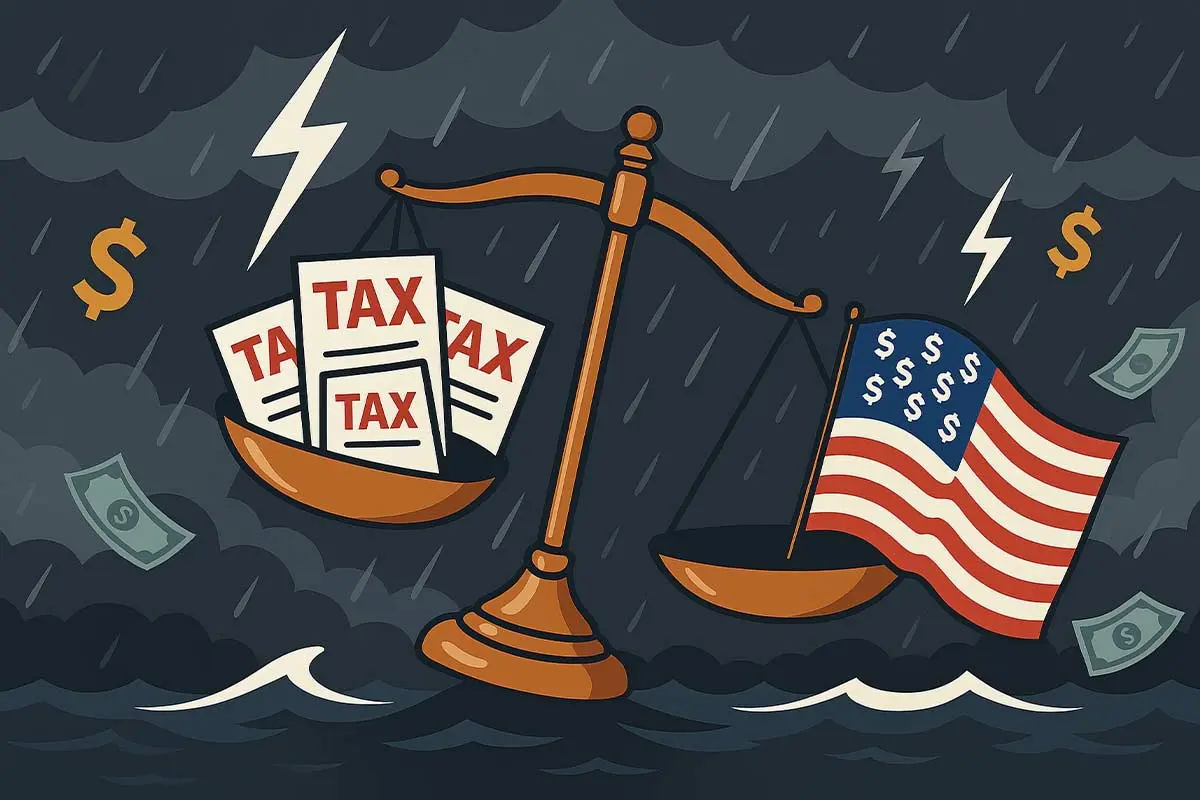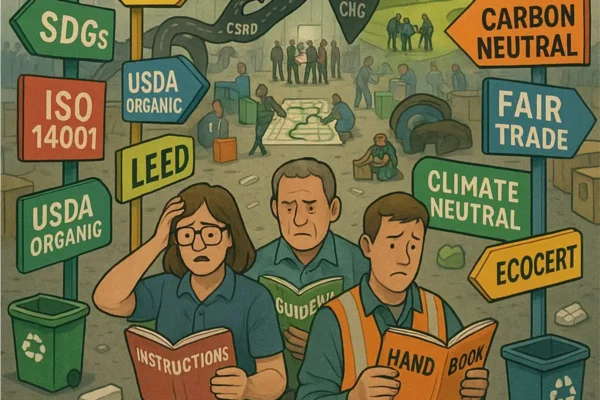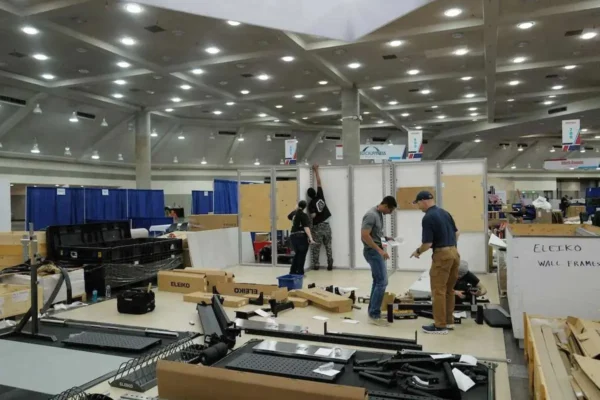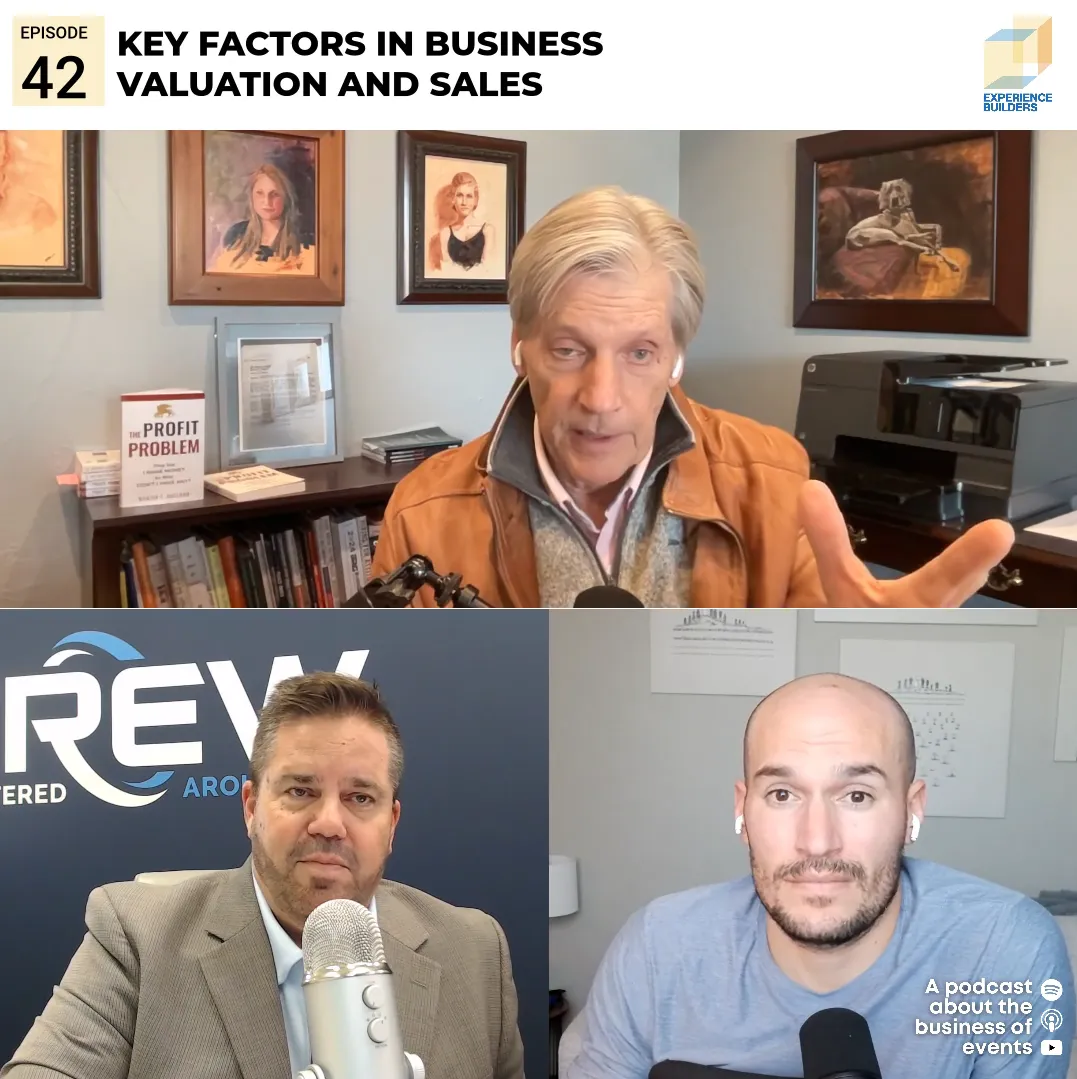Exhibit City News (ECN) understands that this topic is fluid and ever changing, the following article was written in May 2025. As of July 2025, much of what was discussed in this article was impacted by the Big Beautiful Bill.
As major tax cuts from 2017 are set to expire in the U.S., the exhibitions and events industry is worried about what comes next. Tommy Goodwin, executive vice president of the Exhibitions and Conferences Alliance (ECA), says the fallout could hit hard.
ECA’s 2025 Tax Reform Agenda webpage states: “In 2025, the U.S. business and professional events industry will employ 2.63 million Americans and drive $426.1 billion in spending nationwide. Our industry currently pays $51 billion in federal taxes and $79 billion in state and local taxes in communities across the U.S. Business and professional events—including trade shows, conferences, meetings, and expositions—drive demand for restaurants, hotels, travel services, and Main Street commerce, which further contributes to federal, state, and local tax revenue. They also support small businesses: 99 percent of all business events organizations are small businesses themselves, and more than 80 percent of all exhibitors at U.S. business events are entrepreneurs and small businesses.”
Exhibit City News (ECN) sat down to speak with Tommy Goodwin about taxes, his predictions, and how we, as an industry, can help.
ECN: Mr Goodwin, thank you for joining us today. You’ve stated that the tradeshow industry contributes approximately $130 billion in annual tax revenue, so the issue of tax reform is very important to the industry. Can you outline ECA’s position regarding tax reform?
Goodwin: ECA is the advocacy arm of the industry, and one of the issues we’re working on this year is tax reform. As this conversation has gone on, it’s like anything: ‘We could just extend that. Why don’t we throw this onto it? Why don’t we do this? We should do this too.’ The discussion is like a Christmas tree, we’re hanging different ornaments on it.
ECN: Does the current political climate concerning debt complicate the discussion?
Goodwin: Yes. During the campaign President Trump talked about changes like no taxes on tips and no taxes on social security. You add those things in, it starts to raise the price tag a little bit, and that price tag is already going to be about four and a half trillion dollars over 10 years. That’s a lot of money, even by D.C. standards. So, the question that’s been percolating in Washington D.C. for a year or so now is how do we pay for that? Do we pay for all of it? Do we pay for none of it? Do we pay for some of it? What do we do with that?
ECN: What specific concerns does ECA have on tax reforms’ effect on the industry?
Goodwin: There are three main concerns: potential corporate tax rate increases could reduce companies’ marketing and events spending; changes to nonprofit tax status could affect associations’ trade show revenues; and modifications to private equity tax treatment could limit industry investment.
First is raising the corporate tax rate. If you raise the corporate tax rate, small businesses have less to spend on their employees, on growing their business, that kind of thing. But, if you think about where else companies would cut back, it’s going to be marketing, advertising, travel, entertainment. That’s basically the entire fuel of the tradeshow industry. That could have a catalytic impact.
ECN: Nonprofits? How does their tax status impact the industry?
Goodwin: We’ve seen in the news various nonprofit organizations, colleges and universities have run afoul of the current administration. That kind of generated a conversation. Should we just change writ large the tax status of nonprofits or certain nonprofits? A change in status would affect nonprofits like raising the corporate tax rate would affect businesses, and many of those nonprofits are heavily involved with the tradeshow industry.
ECN: You mentioned private equity. The popular view of private equity involves giant corporations devouring other corporations, how can this matter to the tradeshow industry?
Goodwin: I think that’s probably business by business specific. I know that at least among one of the acquisitions of the general service contractors recently, their acquiring firm has pumped quite a bit of money into the business. I think there’s just a broader perception that private equity is extractive by its nature. But in the industry, it’s not just billion dollar companies being bought by even bigger billion dollar companies to be spun off and sold as billion dollar companies one day. I don’t think that’s necessarily where the paradigm is in this particular space.
The pandemic, or more specifically, the pandemic recovery, had a hand in bringing private equity deeper into the industry. Private equity took a particularly keen interest in this industry as they saw people coming back to face-to-face events. They realized this may be the last vestige of where buyers and sellers get together somewhere as opposed to Zoom.
A lot of companies took on some private equity funds during the pandemic when they couldn’t get Paycheck Protection Program assistance or PPP ran out. That was their bridge from the dark days of the pandemic to the light at the end of the tunnel. Many of these companies were small businesses. Go through an archive of Exhibit City News over the last two or three years, look at where a lot of private equity acquisitions were. On the service contractor side, GES was just purchased, Fern Expo, those were all private equity deals.
The ECA board of directors and the associations that we represent believe cutting off access to a source of investment is not a good idea. Our thought is to keep things the way they are. I would imagine any change to the tax treatment of private equity would either freeze or drastically reduce the amount of investment coming out of private equity firms.
ECN: Are there any further concerns ECA has beyond the main three?
Goodwin: We’ve got a workforce development provision that would allow tax advantages to college savings plans to pay for certifications and licenses and that kind of thing. Workforce development is vital to the industry and ECA sees education and training as important. We have a fairly well known skilled workforce shortage in our industry. Are there things you can do in the tax code to help with that? For example, do 529 plans have to pay for just college? Can they pay for a license? Can they pay for certification? Can people put money away with a tax advantage and get a career jump? There is the certified exhibition manager program. Salary studies have shown, get a CEM certification and your salary can jump, $12,000, $13,000.
ECN: What are the next steps?
Goodwin: What we’re really fighting back against are tax increases against the industry. ECA thinks about it from a growth perspective. If you raise corporate rates, that’s less money than companies are investing in their trade shows and coming to face to face events. If you change the treatment of private equity, that’s less investment coming into the industry. If you change the tax status of the associations, that’s not only likely fewer associations, but less actual good nonprofit work that the associations themselves do. It’s how do we think about the tax code in a way that is pro-growth, pro-investment, pro-impact, and pro-workforce development.
ECN: As ECA says on their website: We are America’s small businesses supporting America’s small businesses.
For more information on ECA’s tax reform agenda visit www.exhibitionsconferencesalliance.org/policy-priorities/eca-2025-tax-reform-agenda
For more information about the Exhibitor’s Conferences Alliance see www.exhibitionsconferencesalliance.org
This story originally appeared in the Q3 2025 issue of Exhibit City News, p. 32. For original layout, visit https://issuu.com/exhibitcitynews/docs/exhibit_city_news_-_jul_aug_sept_2025/32.































